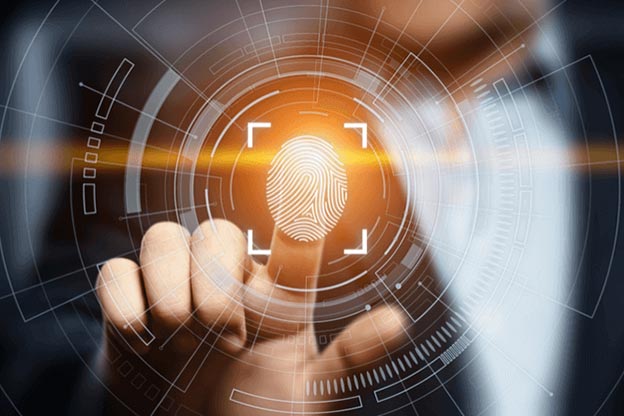As you know, at Vita Life Consultancy Inc. we like to advise you on everything related to the Web and its digital world. We also like to guide you towards the new WEB 2.0 trends but also to educate you on certain measures and precautions that will make this adventure a much more positive experience for you entrepreneurs and business leaders as well as for your users, customers, followers. You should have no illusions if you believe that the old ways of running a business are still relevant.
The digital age has been here for a few years now and if your company or your brand does not follow this trend, your company can only be forgotten. To remedy this situation, today we offer you some tips.
To be up to date and to be part of this trend, it is not enough to equip yourself with electronic equipment, to have a small web page, or to acquire several screens for your offices. No, a digital identity is your online presence. Through reading this article, you will be able to understand and practice the next steps for your success in the digital world!
The importance of this Digital Identity
Digital ID, like other technological inventions similar as nuclear power and indeed ubiquitous GPS, can be used to produce value or induce detriment. Without proper controls, directors of vicious digital ID systems, whether they work for private sector companies or governments, would have access to and control of the data.
History provides despicable exemplifications of the abuse of traditional ID programs, including the importunity or persecution of ethnical and religious groups. Digital ID, if inadequately designed, could be used in indeed further targeted ways against the interests of individualities or groups by government or the private sector.
(“Digital ID: A key to inclusive growth | McKinsey”) Implicit provocations could include fiscal gain from the collection and storehouse of data, political manipulation of an electorate, and social control of groups through surveillance and restriction of access to uses similar as payments, trip, and social media.
How big is the digital identity market?
With the ever-increasing growth of the market and its increasingly connected users, you are on the wrong track if you have not yet made this digital transfer. Indeed, according to BusinessWire.com The Global Digital Identity Market is estimated to be USD 16.6 billion in 2021 and is expected to reach USD 40.44 billion by 2027. This identity on the internet therefore has an influence on your notoriety, on the sale of your products and/or services and how Internet users perceive a company.
Concretely, what is a digital identity. According to our source, digital identity is all the digital traces that a person or a community leaf on the Internet. All this information, left over browsing, is collected by search engines, such as Google, Bing and is made public.
A digital identity, or IDN, can be made up of a nickname, a name, images, videos, IP addresses, favorites, comments, etc. This identity on the internet therefore has an influence on e-reputation, on the way Internet users perceive a person. In summary, digital identity is the image you send back on the internet, your virtual, dematerialized image.
The different types of digital identity
Our agency has identified several types of digital identities that exist and that meet different categories. Whether it is information, depending on the source, its content, and its author. This data thus circulates without the knowledge of its user.
This information also circulates sometimes without the knowledge of its user and can have a harmful influence on the integrity of the person or the corresponding entity.
One can easily create three distinct categories of digital identity corresponding to the origins of the different sources and the information disclosed:
The Declarative identity
This type of digital identity corresponds to the colorful information that has been handed by the person or reality concerned, with varied information, relating to the nature of the subject, his connubial status, and other veritably objective rudiments.
The calculated identity
The measured identity results from the different analyzes carried out about the acting identity. The conclusions therefore make it possible to establish a profile of the individual or of a service to which he’s combined.
The acting identity
The acting identity is determined by the different conduct carried out on the web by the user. Therefore, we can make a trace of the ultimate by observing his stations and habits from his account. As well as his friend on Facebook in particular. Their data will be collected in this way. The bank law and the word no longer have any secrets for these websites as an illustration. Also, this information is a real goldmine for some companies, which use big data as veritably instructional statistics at the marketable position. A question also arises where is the right to privacy and private data limited?
How to properly manage your digital identity?
Although users are obliged to fill out their profile with as much information as possible to benefit from optimal visibility on search engines, this is not without risk. However, although the disclosure of your information is not without risk, we have written a short guide for you to take some precautions on your future actions on the net:
Manage privacy settings on social networks
If far too many people forget this essential step, fortunately more than 88% do not neglect it. With the ever-increasing use of social networks, we are more and more inclined to publish our daily life, which attracts dishonest people. Indeed, if you give a lot of substantial information without restraint, the basic parameters of the most popular social networks will not protect you. Without certain increased changes in your profile settings, you expose yourself to great risks such as digital identity theft. According to Facebook.com, more and more of their Internet users are receiving friend requests from people they don’t know and with whom they have no friends in common. At Vita Life Consultancy Inc., we advise you not to accept such people as they may be malicious towards your digital information.
According to digitalinformationworld.com, in August 2019, DuckDuckGo (a search engine that depends on being as private as possible) conducted a paid survey to find out how people are feeling about their privacy online. (“Nearly 80% of Social Media Users Have Adjusted their …”) Around people shared in this survey. The results were what one might anticipate. Around 79.2 percent of the people have acclimated the privacy settings of their social media accounts in one way or another over the last 12 months. What’s indeed more intriguing is that nearly 23 percent of the people have deleted/ turned off their profiles due to privacy enterprises. Although similar issues are substantially linked with Facebook, social media services like Twitter and Instagram have also been affected this time around with figures going as high as 34 percent and 36.1 percent independently. When the results were presented in a map form, it was revealed that in the last time, around 43.1 percent of the people have acclimated their privacy settings by removing posts. Also, 35 percent have made their biographies fully private.
Always be wary of what’s free
If you have some knowledge of sales and advice, you have surely heard the famous saying “if it’s free, you are the product.”, if so, then you have a huge lead over web predators. Indeed, when you browse, like or search, you reveal your consumer choices for free. For private companies such as Facebook, Instagram or even the giant Google, this digital data is precious to them because it allows them to better understand you to sell you better. Unfortunately, other organizations, criminal (you guessed it), will seek to obtain this data in ways unimaginable. Indeed, we have all seen this famous Pop-Up window open before our eyes, announcing that we have won an all-inclusive trip to the Caribbean or telling us that we have won five million dollars and obviously, if you have caught, a hacker has stolen your data.
Change password regularly
Even if today, there are increasingly simple ways for cybercriminals to obtain your password, it is not negligible to change it regularly before always staying ahead of a malicious hacker. In addition to making the task even more complicated, you also secure your personal and/or professional data. Ideally, according to Terra Nova Security, it is strongly recommended to change your password every three months. Experts from this company also recommend always enabling two-factor authentication present on most websites these days (45% of companies use multi-factor authentication, up from 25% last year. 23% is the average security score for companies before using a password manager (46% is the average security score for companies with more than 500 employees).
Do not click on dubious links
The technique of ‘phishing’ or fishing in everyday language is a deceptive way for suspicious individuals to recover your personal and professional information and your digital data. Although most Internet users are aware of this trap on the Web, more than 1000 people are trapped each year by these cybercriminals. “Since the start of the COVID-19 pandemic, Statistics Canada determined that more than one in three Canadians have received a phishing attack.” (“What phishing looks like in 2021 – Get Cyber Safe”) These web scammers are using increasingly optimized schemes. In 2021, there were 1,000,000 phishing emails sent to North America citizens and unfortunately, 19.8% of these Internet users clicked on these fraudulent links.
In conclusion:
To conclude this article, we would like to guide you through this transfer of your identity from the physical world to the virtual world. Most of your data may already be online, in your digital identity. However, some steps and several options may require research and effort to fully transition. Therefore, our agents are available to you, they will be able to support and advise you throughout the process. Please contact us here !







